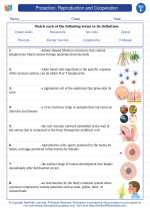Zygote
A zygote is the initial cell that is formed when two gamete cells (sperm and egg) fuse during fertilization. This cell is the very beginning of a new organism, containing the genetic material from both parents.
Formation of Zygote
When a sperm cell fertilizes an egg cell, they combine to form a zygote. This typically occurs in the fallopian tube of the female reproductive system.
Genetic Material
The zygote contains a complete set of chromosomes, half from the mother and half from the father. These chromosomes carry the genetic information that will determine the characteristics of the new organism.
Study Guide
- What is a zygote?
- How is a zygote formed?
- What is the genetic composition of a zygote?
Understanding the formation and significance of the zygote is crucial in the study of reproduction and genetics. It marks the beginning of a new life and the combination of genetic traits from both parents.
.◂Science Worksheets and Study Guides Sixth Grade. Protection, Reproduction and Cooperation
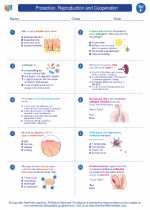
 Worksheet/Answer key
Worksheet/Answer key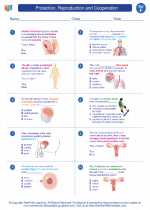
 Worksheet/Answer key
Worksheet/Answer key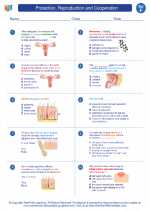
 Vocabulary/Answer key
Vocabulary/Answer key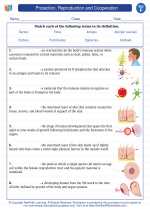
 Vocabulary/Answer key
Vocabulary/Answer key
 Vocabulary/Answer key
Vocabulary/Answer key